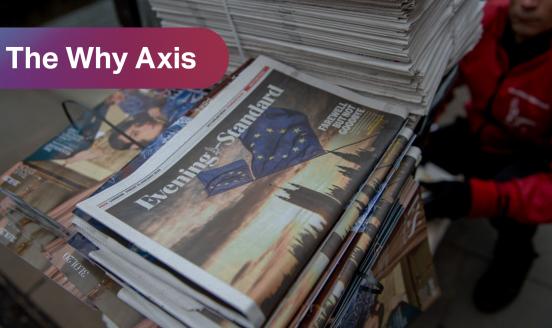Why the Issue of Convergence Should Remain on Backburner
Ahead of the G20 summit in Pittsburgh, Resident Scholar Nicolas Véron argues that the project to converge standards between the American Financial Accounting Standards Board and the International Accounting Standards Board has moved too hastily. He recommends that the issue of convergence should be left on the backburner and that the FASB and the IASB should instead focus on ensuring high-quality accounting to meet the needs of capital providers.
The G20 this week in Pittsburgh will reaffirm its mantra, that accounting standard-setters should make progress towards "a single set of high-quality global accounting standards". But doubts are emerging about both global accounting harmonisation and standards quality, measured against the information needs of the financial reporting audience.
Last October, the International Accounting Standards Board, its hand forced by the European Union, enabled banks to limit their use of fair value (aka mark to market) accounting and avoid reporting losses if market conditions deteriorated. In April, under pressure from Congress, the Financial Accounting Standards Board in turn adopted changes to its financial instruments standard, allowing banks to not book some of the bad news. The two boards then claimed they would work together on the next steps. But in July, the IASB published a draft standard that potentially restricts the scope of fair value, while the FASB hinted at expanding it. On this most important issue, the "convergence" strategy pursued by standard-setters since 2002 seems to have gone off track. Meanwhile, the US Securities and Exchange Commission has become more wary of mandating rapid IFRS use by domestic issuers. In Europe, the lure of going it alone is palpable: in April, France's top central banker Christian Noyer said that "Europe can well reclaim its freedom" and could "decide to take back control and write the accounting rules . . . without following the IASB".
The convergence project had been pushed too hastily. After the success of EU adoption, IASB chairman David Tweedie has wanted to secure IFRS endorsement in the US, the ultimate prize, before his term ends in 2011. With this focus, the IASB and its Trustees neglected to consolidate support, both in Europe and among their ultimate constituents in the global investment community.
They did not rise to their new-found public responsibilities, failed to adequately address non-accounting audiences such as parliaments, and were not proactive in reforming their governance to improve accountability. As a result, the IASB found itself with few friends when the crisis hit. It has little choice but to accommodate EU pressures, at the expense of IFRS quality.
To judge from past banking crises, allowing banks to reduce transparency in the middle of the storm will be regretted by policymakers. It is ominous that the leading advocate of "suspending fair value" in early 2008, Martin Sullivan, was then chief executive officer of AIG. But critics of fair value dominate the European ground. Governments are too keen to quickly shore up "their" banks to care about financial reporting quality, and the EU investor community is weak and fragmented. The ability of the US to exert counteracting pressure is limited, as the SEC, weakened by its failures, is fighting for survival in the regulatory overhaul, and even though US
investors, including public pension funds, might eventually assert themselves in the accounting discussion.
The reasonable recommendation made by the Financial Crisis Advisory Group (a blue-ribbon committee belatedly set up by the IASB) and others, to further disconnect regulatory capital standards from financial accounting, goes mostly unheeded. On the contrary, the Basel Committee, which co-ordinates capital standards-setting and where Europeans retain disproportionate clout, has intruded in IFRS standard-setting.
The financial system would be better off if convergence was left on the backburner, and the emphasis reverted to truly high-quality accounting to meet the needs of capital providers. If IFRS become the superior standard, the US will adopt it. But breaking the vicious circle would require more vision and leadership than the main players seem able to display. The crisis has been a harsh test for international accounting standard-setting, and the next steps are likely to lead further downhill.
Nicolas Véron is a research fellow at Bruegel and author of Smoke & Mirrors, Inc.
This op-ed was published by Financial Times on 24th September 2009.



